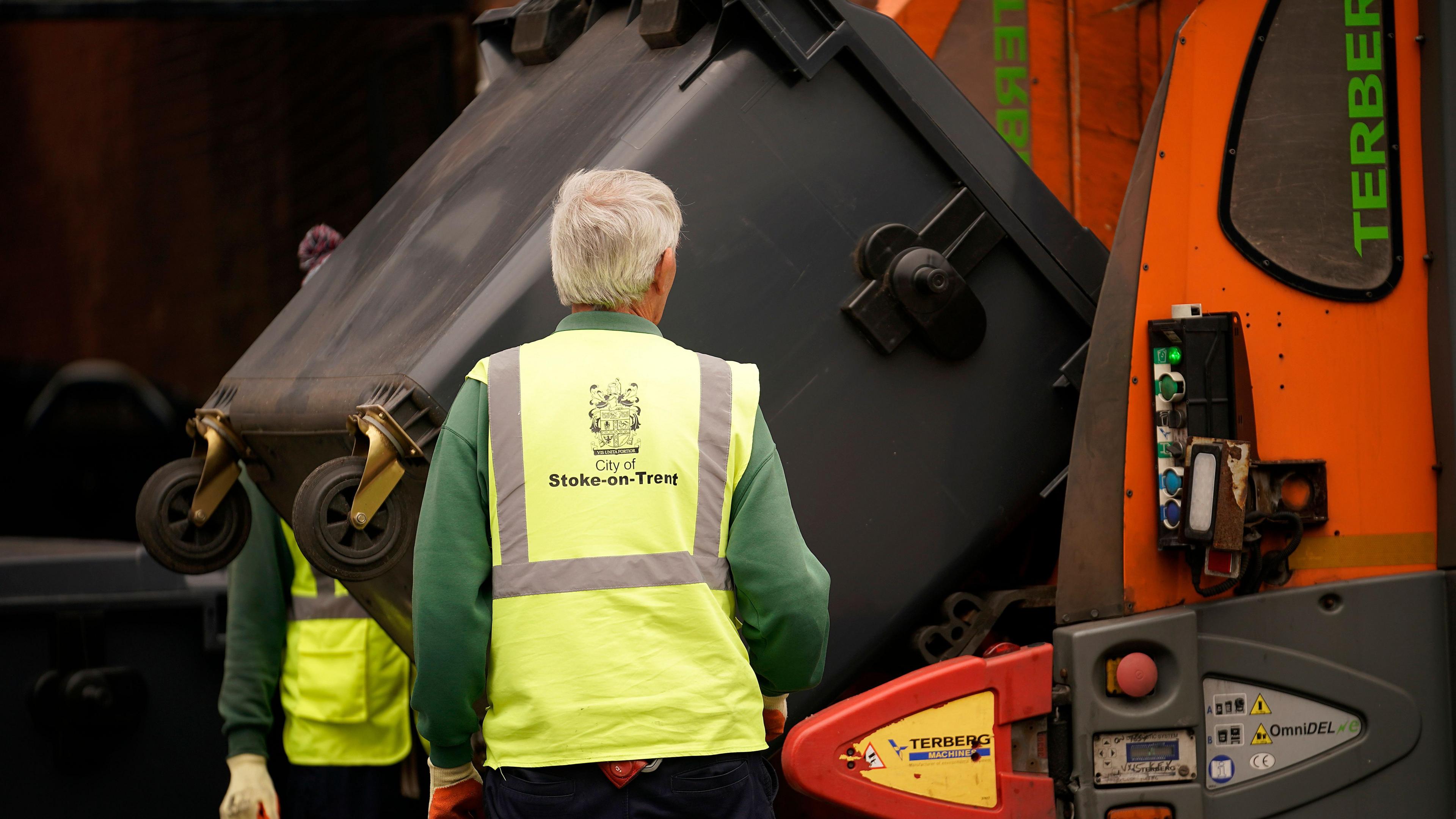English councils to get £700m top-up next year

- Published
The government has announced an extra £700m for English council budgets next year as a "first step" to rebuild their finances.
The top-up brings additional funding for next year to around £2bn, on top of £1.3bn announced at October's Budget.
But £515m of the new funding has been earmarked to offset the effect of the rise in National Insurance (NI) contributions from next April.
The Local Government Association, which represents councils, said authorities would still "struggle to balance the books" amid wider funding pressures.
As under the previous government, they will be able to raise council tax by up to 5% without holding a local vote, with local rises announced next year.
English councils say funding boost won't be enough
- Published18 December 2023
Rayner promises mayor for every region of England
- Published16 December 2024
The provisional figures cover spending from April next year, and will be subject to consultation and potential further revision in February.
The extra funding for next year includes £600m that will be allocated to councils according to their level of deprivation, with a separate grant to help rural councils deliver services "repurposed".
Ministers argue this will make the system fairer because councils in poorer areas are less able to raise income locally, but it has prompted a backlash from the County Councils Network, which represents large county authorities.
The CCN said rural areas were set to lose out, and argued that deprivation is not a "key indicator of which councils are under the most financial distress".
This argument is set to grow louder next year, when the government consults on introducing a stronger link between overall funding and deprivation from 2026 as part of a wider shake-up of council financing.
Ministers say the new formula will take into account the "impact of rurality" - but they could have a political row on their hands, with Tory councils in more rural areas likely to argue they are being short-changed.
Monthly bills
Other future changes include a move towards multi-year funding settlements, a Labour manifesto promise, with the government promising budgets will cover a minimum of two years.
Council tax bills will also move towards monthly payment by default, instead of spreading payments over 10 months as now, with taxes for social care displayed separately and more information on how taxes are spent.
Next year's settlement includes an extra £200m to help councils with responsibility for adult social care to provide subsidies for care costs, taking total funding in this area to £3.7bn next year.
Although the cash boost is likely to be welcomed by the sector, providers have expressed concern about the impact of rising National Insurance (NI) costs.
Tax rises
Charitable and private sector providers are ineligible for a funding pot reserved to compensate public sector bodies, although the prime minister's spokesman said a plan to alleviate the rise for hospices would be announced before Christmas.
Although councils will share £515m to offset NI rises for their employees, the CCN argued the sum would not be enough to offset indirect costs from council services delivered by private providers.
The LGA has also argued extra costs for contractors will mean some council services will become more expensive to deliver.
Shadow local government minister David Simmonds said the government's funding boost was "beautifully packaged" but councils would find the "box is somewhat emptier than people were expecting" given funding pressures.
He added that councils also faced uncertainty over the costs of funding local elections next year, after the government confirmed plans this week to merge councils as part of a major shake-up of the council map.